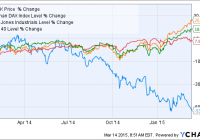Prime Minister Tsipras Resigned, The Greek Parody Is Set To Continue
Summary Prime minister Tsipras resigned, new elections are expected in September. A new anti-austerity Popular Unity party to be created. GREK investors should expect increased share price volatility and potentially new lows. The Greek parody seemed to come to an end finally. But the recent developments show that another act has only begun. Although opponents of the austerity measures were victorious in the referendum that took place in early July, the Greek government agreed to adopt reforms and austerity measures demanded by the creditors, in order to avoid the looming state bankruptcy. On July 15, the Greek parliament approved bailout measures with 229 out of the total of 300 votes. The measures included increase of value added tax, limits on public spending and reform of the pension system. As a result, €86 billion should be provided to Greece over the next three years. The reaction of the Global X FTSE Greece 20 ETF (NYSEARCA: GREK ) was positive at first, but the share price decline resumed very quickly due to the uncertainty as to whether the new financial package for Greece will be approved by the creditors. There are 19 countries in the eurozone and in 8 of them (Austria, Germany, Greece, Estonia, Finland, France, Latvia, Slovakia) the parliament had to decide whether the country will vote for or against the bailout package. Things started to look brighter in August, as it began to be clear that the bailout package will be approved. On August 18, Fitch upgraded the Greek credit rating to CCC, on August 19, the German parliament approved the bailout package. Germany was the last country to approve the package. It seemed like the Greek problem has been resolved (swept under the carpet) for now. But another of the countless surprises was prepared by the Greek government on August 20, when prime minister Tsipras resigned . According to Reuters, the new elections should take place on September 20. Tsipras wants to support his position and get rid of the opposition inside his own party. According to BBC , 25 members of Syriza plan to create a new Popular Unity party, led by the former energy minister Panagiotis Lafazanis. The situation may get really complicated, as the July referendum showed that a majority of Greeks opposes the austerity measures. If the new anti-austerity party gains too much power, all the bailout process may be endangered. After Tsipras won elections in January 2015, he said that his government doesn’t feel obliged to fulfill commitments of former Greek governments. If the new government behaves the same way, the Greek parody may start over again. Source: own calculations, using data of YahooFinance It is highly probable that the relatively calm couple of weeks have ended for GREK. Volatility measured by the 10-day moving coefficient of variation (chart above) was relatively low over the last couple of weeks, as it ranged from 1% to 4%. But GREK investors should prepare for another turbulent period ahead. GREK’s share price development will be driven mainly by the pre-election polls. The most vulnerable part of GREK’s portfolio continues to be shares of Greek banks, however their cumulative weight declined to approximately 12%. The banks are in a complicated situation, as the eurozone finance ministers declared that bail-in of depositors will be explicitly excluded. It means that the Cypriot scenario shouldn’t repeat in Greece. But the bondholders are endangered. This decision should prevent bank runs and increase the trust of depositors in Greek banks. On the other hand, Greek banks will have even bigger problems to raise money via bond markets. Conclusion The situation in Greece is getting more complicated once again. If the anti-austerity parties win the coming elections, it is hard to predict what may happen. GREK investors should be prepared for another weeks of increased share price volatility and it is quite possible that new lows will be created. Disclosure: I/we have no positions in any stocks mentioned, and no plans to initiate any positions within the next 72 hours. (More…) I wrote this article myself, and it expresses my own opinions. I am not receiving compensation for it (other than from Seeking Alpha). I have no business relationship with any company whose stock is mentioned in this article.
